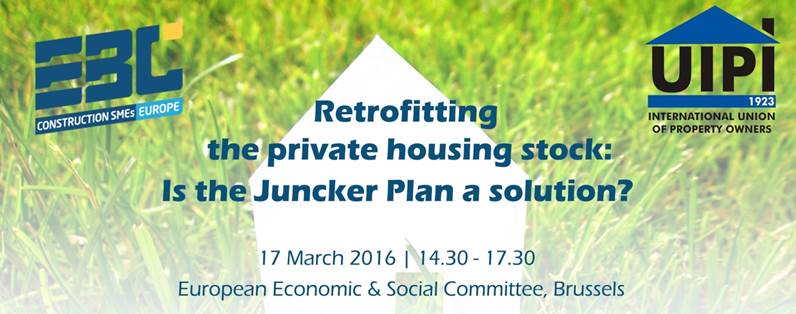
Policy Forum: European energy and industrial policy realigned. What job for public authorities?
Date
Section
Event Location
Event Description
The Institute for European Studies at the Vrije Universiteit Brussel kindly invites you to a policy forum on 27 February 2014, 12:00-14:00h for the Policy Forum "European energy and industrial policy realigned. What job for public authorities?".
In its latest Communication on energy prices the European Commission describes an unfavourable development of energy prices in the EU that threatens the competitiveness of energy intensive industry. According to this assessment, the increasing energy price gap between the EU and other regions is one of the main impediments for a renaissance of Europe’s industry; weaknesses in the Internal Energy Market and Member States’ policies on network costs and taxes/levies are pointed out as responsible factors.
EU energy policy has not entirely succeeded in securing competitiveness of energy intensive industries. The Commission therefore sees the need to readjust European industrial and energy policy. Industry and energy evolved from merely developed European policies to a double pillar of the EU, fused together in an eco-innovation strategy that pursues sustainability as its guiding principle. This strategy may provide Europe’s economy with a good starting position for global economic competition in the 21st century, yet some adjustments seem to be necessary in order to reduce inconsistencies. An understanding of energy policy as a prerequisite for successful industrial policy allows us to assess the measures needed to increase the competitiveness of Europe’s economy.
Moreover, this approach clarifies the relevance and the means of public intervention in the European energy market. In view of the latest Commission assessment on energy prices, the following question arises: what could be done in order to realign the two policies in a manner that suits energy intensive sectors? Moreover, in view of the 2030 goals for a competitive, secure and low carbon economy, it should be discussed how such an agenda could go together with European climate and energy ambitions.
This IES Policy Forum therefore debates European energy policy as a means of industrial policy, and ask how it could be adjusted in order to support energy intensive industries, without compromising the EU’s eco-innovation strategy. How can European industrial and energy policy be better co-ordinated? What options do public authorities have to ensure consistency between the two? What kind of public intervention in energy markets is necessary? Do national interventions pose a threat to the finalisation of the Internal Energy Market by 2014? What risks/chances does the new focus on industrial policy imply for the European low carbon agenda?
The lunch seminar will include the following speakers representing European energy intensive industries:
- Marzena Rogalska, Policy Analyst, European Commission, DG Industry, Head of Unit Sustainable Industrial Policy
- Gunnar S. Jungk, ThyssenKrupp AG, Chief Representative Office Brussels
- Giuseppe Lorubio, Eurelectric, Head of Unit Retail Customers
- Tomas Wyns, Institute for European Studies IES, Doctoral Researcher
Related Events

WORKSHOP
When: Thurs. 14 January, 10.30
Where: European Parliament press room, PHS building Room 0A50
The European Commission is reviewing European Waste legislation in line with the EU Resource Efficiency objectives.
Place: European Parliament, Room A5E 2
According to the EU Roadmap to a Resource Efficient Europe, each year in the EU we throw away 2.7 billion tonnes of waste.
EUROPEN is celebrating its 20th anniversary event on Wednesday 9 October from 4:00 to 8:30 pm at the Residence Palace in Brussels.
The global financial crisis and, in part, fiscal profligacy have contributed significantly to a sharp rise in government debt levels in Europe. Therefore, tackling excessive public deficits and debts has once again become a priority.
Agriculture faces major challenges to deliver food security at a time of increasing pressures from climate change, social and
economic inequity and instability, and the continuing need to avoid further loss in ecosystem biodiversity. The introduction of
Brief Abstract
The seminar is the closure event of an 18-month project, co-funded by the European Commission, aimed to raise awareness
about opportunities arising from the EU-Canada economic and trade agreement. After an institutional perspective, provided
Privatization of Public Goods
26 June 2013, 15.00-18.30,European Parliament, Room ASP A1G2
PROGRAMME
15.00 – 15.15 Opening
Gabi Zimmer, President GUE/NGL
Thomas Händel, MEP GUE/NGL , (Die Linke, Germany)
The importance of Science in the agricultural sector is vital and the role of communicating this to a wider audience equally so.
Welcome
Rainer Steffens, Head of the Representation of the State NRW to the European Union
Introduction
Sustainable development depends on real commitments and actions, by real people in the real
world – statement from 2002 Johannesburg Earth Summit Declaration. Several voluntary commitments where mentioned at Rio +20 as good practice of industry moving towards improved sustainability.
The Greens/EFA group in the European Parliament invites you to a conference on "How GMO-free labelling of food products can contribute to increase GMO-free supplies for animal feed", co-hosted by MEPs José Bové, Jill Evans and Bart Staes.
HEARING "Priorities of sustainable development of Dnipropetrovsk region (Ukraine) - pilot area of dynamic interregional European cooperation. Energy efficiency, Ecology, Local self-government development"
January 30th, 2013
15:00-18:30
Dear colleagues,
Organised by URBAN Intergroup
Monday 26 November 2012
Mr. Oldřich Vlasák Vice-President of the European Parliament and RICS kindly invite you to this seminar.
You are cordially invited to attend the breakfast briefing that ETNO will be hosting on 16th November at the Renaissance Hotel, Brussels, from 8.30 to 10.00, entitled “The EU Telecoms Sector today & tomorrow.
Securing Europe‘s Raw Material Supply in the Context of Resource Efficiency and EU Industry Policy
There is no energy- and resource efficiency, no climate protection, no future technologies for our modern
world without the use of non-ferrous metals.























